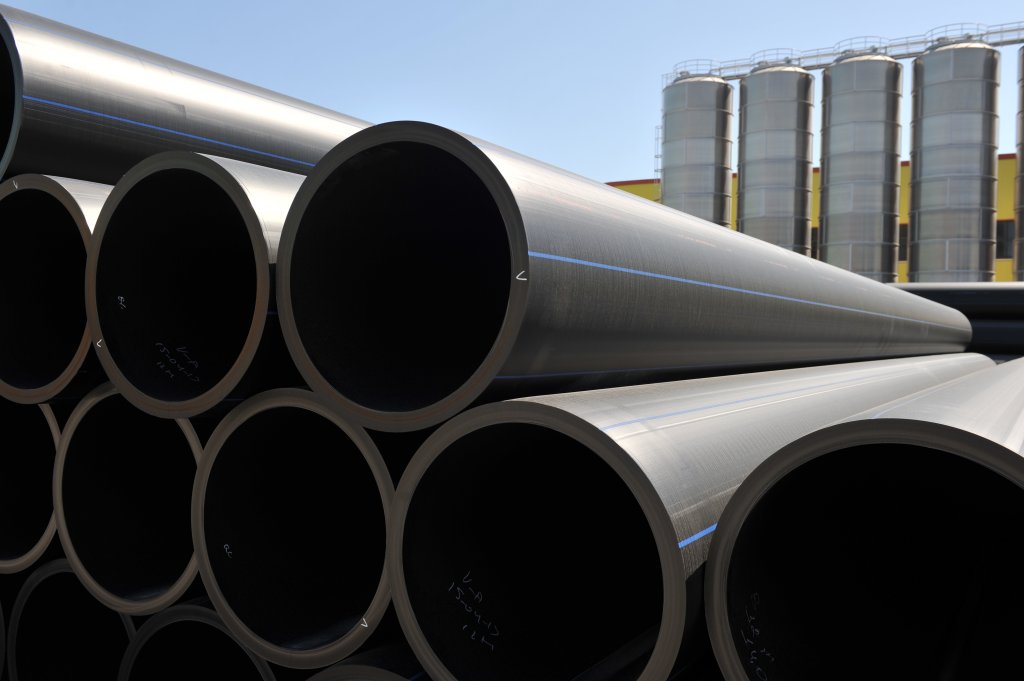How American Plastics HDPE Pipe for Oilfield Supports Energy Infrastructure
Wiki Article
Understanding the Secret Conveniences of HDPE Pipeline for Water and Wastewater Monitoring
Using HDPE pipeline in water and wastewater management presents various benefits that warrant factor to consider. Its outstanding toughness and long life expectancy make it a favored selection for numerous tasks. Additionally, the product's resistance to deterioration and chemical damage enhances its reliability in numerous environments. The advantages prolong beyond just long life and resistance. Pipe Supplier American Plastics Midland. Exploring its cost-effectiveness and environmental effect discloses also more compelling factors for its widespread adoption in modern infrastructurePhenomenal Toughness and Long Life

HDPE pipe stands out for its outstanding toughness and durability, making it a favored selection in water management systems. Created from high-density polyethylene, these pipelines can hold up against substantial pressure and tension, ensuring trusted efficiency gradually. Their robust nature enables them to endure severe environmental conditions, including temperature fluctuations and dirt motions, which can trigger other products to stop working.
The lifespan of HDPE pipelines usually surpasses 50 years, supplying an affordable solution for communities and industries alike. Additionally, the product's lightweight residential properties simplify installment, minimizing labor costs and timeframes. This durability decreases the demand for regular repair work or replacements, even more improving its economic appeal.
In water management applications, the dependability of HDPE pipelines means fewer interruptions and enhanced service continuity, making them essential to sustainable framework growth. The mix of longevity and long life solidifies HDPE's role as a keystone in effective water monitoring options.
_-_Post_di_Facebook_-_Dimensioni_personalizzate_(1)_60cafdf20856f.png)
Resistance to Rust and Chemical Damage
While several products catch rust and chemical damages with time, HDPE pipes show impressive resistance, making them ideal for numerous water monitoring applications. This durability originates from the molecular structure of high-density polyethylene, which is inherently non-reactive and does not wear away like metals or break down from exposure to severe chemicals. Consequently, HDPE is highly effective in environments with aggressive materials, such as wastewater systems that might include acids, bases, and organic solvents.
Furthermore, HDPE pipes can withstand environmental elements such as dirt acidity and saline conditions, even more improving their suitability for diverse applications (custom hdpe pipe manufacturing Midland TX). Their ability to keep structural stability over time lowers the risk of leakages and failings, which is vital in making certain the security and reliability of water distribution and wastewater management systems. The resistance to deterioration and chemical damages markedly contributes to the general efficiency and durability of HDPE piping remedies.
Cost-Effectiveness and Economic Advantages
When thinking about the monetary implications of water administration systems, the cost-effectiveness of HDPE pipes ends up being obvious. These pipes offer lower installation and upkeep prices contrasted to conventional materials like metal or concrete. Their lightweight nature streamlines transportation and setup, resulting in lowered labor costs. Furthermore, HDPE pipes display a lengthy life-span, commonly exceeding half a century, which converts to fewer replacements and long-lasting savings.The resistance of HDPE to rust and chemical damage reduces the requirement for costly fixings and substitutes. The pipelines likewise support efficient water flow, minimizing energy prices connected with pumping systems. By minimizing leakages and water loss, HDPE pipelines add to significant financial advantages for municipalities and industries alike. On the whole, the first financial investment in HDPE piping can produce significant financial returns over the life expectancy of the water management system, making it a prudent option for sustainable framework growth.
Ecological Sustainability and Decreased Effect

Convenience and Adaptability in Installation
Due to their distinct homes, HDPE pipelines use impressive adaptability and flexibility in installment, making them suitable for a variety of applications. Their light-weight nature enables easier handling and transport, lowering labor prices and installation time. HDPE pipes can be curved and shaped to fit different surfaces and job demands, which is specifically useful in challenging atmospheres.In addition, their resistance to deterioration and chemical damage permits setup in diverse settings without the demand for specialized safety finishes. The capacity to read more fuse joints develops a continual, leak-free system, improving the overall integrity and reliability of the installation. HDPE's adaptability additionally suits ground movement, minimizing the threat of damages in areas prone to changing dirt. Overall, these attributes make HDPE pipelines not just functional but also a preferred choice for water and wastewater monitoring systems.
Frequently Asked Questions
Just How Does HDPE Pipeline Contrast to PVC in Water Monitoring Applications?
HDPE pipe supplies exceptional flexibility, resistance to deterioration, and longevity compared to PVC. Its lighter weight facilitates much easier installment, while its lengthy life-span decreases substitute costs, making HDPE a preferred selection in water administration applications.What Is the Life-span of HDPE Pipeline Under Regular Problems?
Under normal problems, HDPE pipelines can have a life-span ranging from 50 to 100 years. Their sturdiness and resistance to corrosion add to their lasting efficiency in various applications, making them a reliable option for framework.Are HDPE Pipeline Recyclable After Their Life Span?
Yes, HDPE pipes are recyclable after their solution life. Texas hdpe pipe manufacturer. They can be refined and repurposed into new products, significantly minimizing ecological effect and promoting sustainability within the sector, making them an eco-friendly option for piping servicesWhat Is the Setup Process for HDPE Pipes?
The installation process for HDPE pipelines includes site prep work, trenching, pipe blend or mechanical signing up with, backfilling, and pressure testing. Correct strategies guarantee a sturdy and reliable system for transporting water and wastewater effectively.Can HDPE Water Lines Be Used for Both Drinkable and Non-Potable Water Equipments?
Yes, HDPE pipes can be made use of for both drinkable and non-potable water systems. Their adaptability, resilience, and resistance to corrosion make them ideal for different applications, guaranteeing secure and efficient transportation of water in various contexts.Report this wiki page